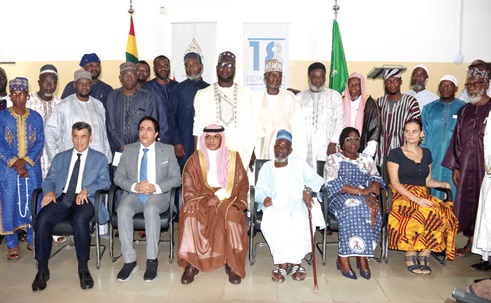
World Arabic Language Day commemorated
The Dean of the School of Languages, University of Ghana, Professor Josephine Dzahene-Quarshie, has said the Arabic language was important for constructive dialogue that could help shape perceptions and cultivate understanding of the global landscape.
She said the language, which was one of the six official languages of the UN, was the fifth most spoken in the world with over 300 million people.
At an event to commemorate this year’s World Arabic Language Day in Accra, Prof. Dzahene-Quarshie said the focus of the ceremony was to highlight the importance of the language in reuniting the world.
“Arabic is one of the oldest developed languages in the world with a history spanning many centuries.
And its importance in the world of business, academia and technology cannot be overemphasised,” she added.
The event was attended by the Ambassador of the Royal Embassy of Saudi Arabia in Accra, Sultan Abdul Rahman Al-Dakhel, scholars and students of the Arabic language.
Prof. Dzahene-Quarshie said over the last decade, promotion of world languages had been one of the hallmarks of the United Nations Educational, Scientific and Cultural Organisation (UNESCO).
“It has recognised the need to celebrate multilingualism and cultural diversity, as well as promote all languages of the world,” she added.
The dean said that the country’s engagement with Arabic dates back over several centuries and that the university had played a lead role in the promotion of the language through its academic programmes.
Training
The faculty of Arabic section of the school of languages, she further said, had contributed significantly to Arabic scholarship and the teaching and learning of Arabic.
“The Arabic section has trained thousands of undergraduate students and has over the years trained many graduate students as well,” she added.
